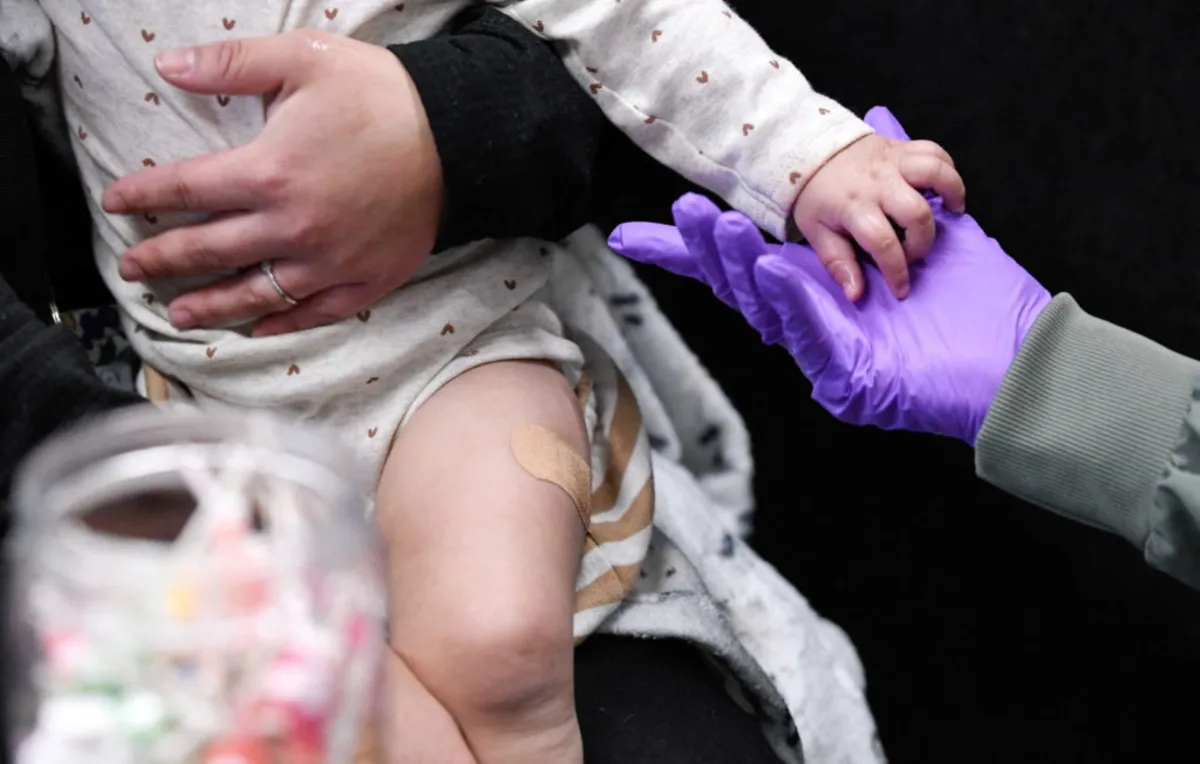
In today's digital age, skepticism towards marketing efforts is more prevalent than ever. With the rise of scams, artificial intelligence, and misleading social media posts, it's essential to question the motives behind information we encounter, especially regarding our children’s health. However, should this skepticism extend to pediatricians who recommend vaccines for children? Recently, Health and Human Services Secretary Robert F. Kennedy Jr. suggested that financial incentives are influencing these recommendations, claiming, “Doctors are being paid to vaccinate, not to evaluate.” This statement raises a critical question: Are pediatricians truly profiting from vaccinations at the expense of children’s health?
A closer examination of the vaccination process reveals that pediatric practices often do not profit significantly from vaccines. In fact, many clinics may even incur losses. Four experienced pediatricians emphasize that evidence-based medicine drives their recommendations for childhood vaccinations. Dr. Christoph Diasio, a pediatrician at Sandhills Pediatrics in North Carolina, argues that the notion of doctors profiting from vaccines is fundamentally flawed. He states, “If it was really about all the money, it would be better for kids to be sick so you’d see more sick children and get to take care of more sick children, right?”
When considering the operations of a pediatric practice, the costs associated with vaccines are significant. Pediatricians invest in specialized medical-grade refrigeration units to store vaccines, often costing thousands of dollars. They also incur expenses related to insurance coverage for the vaccines and implement systems to monitor temperatures and ensure the efficacy of the vaccines. Additionally, the cost of staffing, including nurses who administer the vaccines, contributes to the financial burden.
Dr. Jesse Hackell, a retired general pediatrician and chair of the American Academy of Pediatrics’ committee on pediatric workforce, highlights the financial demands of vaccine storage and administration. He points out, “Vaccines are hugely expensive; we lay out a lot of money up front.” When a child with private insurance receives a vaccine, the pediatrician is compensated for both the vaccine itself and its administration. However, many pediatricians also participate in a federal program providing free vaccines to children in need. Although this program is not profitable, many choose to participate due to their commitment to community health.
When making vaccine recommendations, pediatricians utilize guidelines from either the American Academy of Pediatrics or the U.S. Centers for Disease Control and Prevention. Dr. Jason Terk, a pediatrician at Cook Children’s Health Care System in Texas, explains that a practice's profitability regarding vaccines can vary significantly. While larger health systems may manage to make a small profit, smaller independent practices often struggle to negotiate favorable terms with insurance companies, leading to financial losses.
Dr. Suzanne Berman, a pediatrician at Plateau Pediatrics in rural Tennessee, illustrates this challenge. She notes that 75% of her patients are on Medicaid and qualify for the Vaccines for Children program, which leads her practice to operate at a loss regarding vaccinations. Even with private insurance reimbursements, her practice barely breaks even. “The goal is to not lose money on vaccines,” Dr. Terk emphasizes.
The primary motivation behind pediatricians’ vaccine recommendations is straightforward: they prioritize the health and safety of their patients. Trained medical professionals have witnessed firsthand the devastating consequences of vaccine-preventable diseases. Dr. Diasio recounts the tragic experiences of children who have succumbed to such diseases, reinforcing the importance of vaccination. “We remember those kids; we wouldn’t wish that on anyone,” he states.
It's also crucial to recognize that pediatricians take a holistic approach to a child’s health when making vaccine recommendations. Dr. Hackell notes that only a small percentage of children, less than 1%, may have legitimate medical reasons for not receiving specific vaccines, such as severe allergies or immunocompromised conditions. “When people have questions about whether their kids should get vaccines, they really need to talk to their child’s doctor,” Dr. Diasio advises. “Don’t get lost down a rabbit hole of the internet or on social media, which is programmed and refined to do whatever it can to keep you online longer.”
In conclusion, while skepticism is a valuable trait in evaluating information, it is essential to differentiate between misleading marketing and the recommendations provided by healthcare professionals. Pediatricians are driven by a commitment to evidence-based practices and the well-being of their patients, not financial gain. As parents navigate the complexities of vaccination, engaging in open dialogue with trusted pediatricians can provide clarity and reassurance.